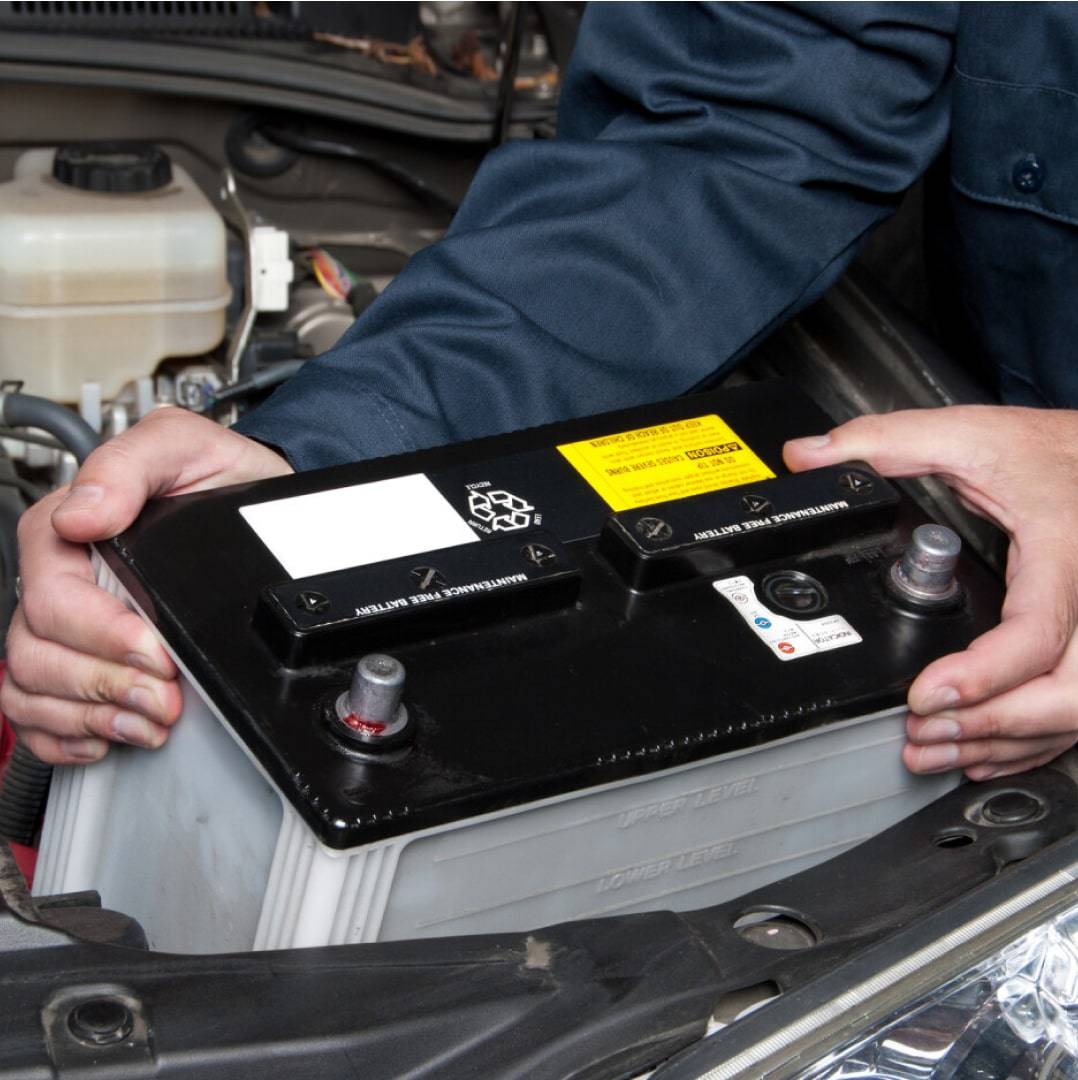[[post.title]]
We're changing for you!
Check out our new website
We're changing for you!
Check out our new website
Jan 8, 2025

Owning a MINI is all about enjoying the drive and keeping your car in top shape for years to come. To ensure your MINI stays in peak condition, regular maintenance is key: tasks like oil changes, filter replacements, and routine inspections. One of the most overlooked aspects of maintaining your MINI Cooper is taking proper care of its battery.
While battery replacement is something you can easily handle on your own, MINI Cooper battery registration can be more complex. That’s why getting assistance from an expert may often be the best option.
Coming up, you’ll learn:
Enjoy the read!

When selecting a replacement battery for your MINI Cooper, it’s wise to choose one with the same specifications as your current battery, particularly in terms of type and capacity. However, you’re not strictly tied to the same specifications, thanks to the registration process. MINI experts can adjust your vehicle's settings through a coding procedure, allowing it to adapt to new battery specs, even if they differ from the old ones.
A common question during a battery replacement is: how can I tell if my MINI battery is Liquid lead-acid, GEL, or AGM? It’s important to know because each type requires different handling, and using the wrong one could shorten its life or lead to safety hazards.
Liquid Lead Acid Batteries are one of the most common and traditional types of rechargeable batteries, used in older (pre-2002) MINI Cooper models. These batteries are known for their "flooded" design, where the cells are filled with a liquid electrolyte, typically sulfuric acid. This design allows for the chemical reactions that store and release electrical energy.
One of the key characteristics of liquid lead-acid batteries is that they require regular maintenance. The electrolyte levels can decrease over time due to evaporation; to remedy this, distilled water could be added to keep the battery functioning optimally.
WARNING! Do not attempt to refill your batteries if you lack the necessary mechanical experience. The acid contained within it is extremely hazardous when handled irresponsibly. BimmerTech recommends reaching out to your trusted car repair shop for that.
Coming back to the batteries: despite their need for upkeep, they are valued for their reliability, affordability, and ability to provide strong bursts of power. That’s why they are a popular choice for vehicles like cars, motorcycles, and marine equipment.
However, they are more prone to leaks and spills if damaged or improperly handled, which is why proper care is essential. You can identify them by the caps on the top which you can open to fill the battery with distilled water.
MINI Coopers typically do not come standard with GEL Lead-Acid Batteries, but for some models, you could get them as a replacement option. These batteries contain an electrolyte that has been thickened into a gel-like substance. This allows them to operate without the risk of leaking or requiring regular refilling, unlike traditional liquid lead-acid batteries.
In the MINI Cooper, GEL batteries can provide steady, reliable power, and be less prone to damage from vibration or environmental factors. A trait especially beneficial for those who drive on rough roads or in varying weather conditions.
Additionally, since they are sealed, GEL batteries don’t emit gases, which makes them safer for installation inside the vehicle cabin or trunk. Although they may come at a higher upfront cost compared to liquid lead-acid batteries, their durability and maintenance-free design make them a popular choice for MINI Cooper owners looking for long-term reliability.
Absorbed Glass Mat (AGM) Batteries are commonly found in MINI Cooper models, particularly those produced after 2002. These batteries are designed to be maintenance-free and are known for their superior performance and durability.
AGM batteries use a special glass mat to absorb the electrolyte, making them spill-proof and highly resistant to vibration. This design makes them an excellent choice for the compact and tightly engineered space of the MINI Cooper.
AGM batteries are highly efficient, providing reliable power for the car’s numerous electrical systems, such as the start/stop function, advanced infotainment, and safety features. They are also better suited to handle the frequent engine restarts and power demands of modern MINIs equipped with energy-saving technologies.
While AGM batteries tend to be more expensive than traditional liquid lead-acid batteries, their longer lifespan, higher power output, and reduced maintenance make them a preferred option for many MINI Cooper models.
The battery location in a MINI Cooper varies depending on the model, but in most cases, it is found under the hood – accessing the battery requires popping it open. It's important to know the battery's exact location for tasks like jump-starting, replacement, or performing maintenance on the vehicle’s electrical system.
If it’s time to replace your MINI Cooper battery, follow these simple steps to complete the task:
NOTE: Before you even start replacing or registering your battery, purchase our Battery Registration service and set your preferred date on which you could replace the battery and register it at the same time. Battery registration has to be handled right after battery replacement, so make sure you’ll be able to do it all in one day.

Battery registration is the process of updating your MINI Cooper’s computer system to recognize that a new battery has been installed. It’s especially important for MINI models made after 2002.
As your battery ages, the car adapts its charging routine to fit the battery's needs. When a new battery is installed, the system must reset these parameters to avoid overcharging the new battery, which could lead to performance issues and shorten its lifespan.
Even if your new battery is the same as the old one, registration is still required.
The electrical systems in MINI Cooper models produced after 2002 are more advanced, adjusting charging based on battery age and condition. When you replace the battery, the system must be updated with the new specs. Otherwise, the car may charge it incorrectly, leading to problems like premature battery failure or damage to the electrical system, including the alternator.
Failing to register the new battery can result in several issues:
Overcharging or undercharging: Without proper registration, the vehicle doesn’t adjust to the new battery’s needs, leading to a shorter battery life.
Electrical errors: Various car systems could malfunction. For example, your windows might not open or close, interior lights may flicker, and other non-essential modules could stop working.
MINI battery coding conducted with the help of our BimmerTech technician is very easy and will take you no more than 15 minutes. Our expert will guide you through it step by step. So, here’s what you should do:
When visiting a service center to replace your MINI Cooper battery with a new, genuine battery, the overall costs may be more than anticipated. The battery registration process alone typically costs more than $200.
However, BimmerTech offers a more affordable solution for battery registration. For exact pricing details, including the cost of the necessary coding cable, you can visit the coding website to get the full breakdown.
Of course, registering your MINI battery with BimmerTech isn’t your only option. There are various MINI diagnostic tools and software available for battery registration. However, with so many choices, it can be overwhelming to decide which tool to use—and that’s where BimmerTech comes in. If you'd rather avoid the hassle and let experts handle the work, BimmerTech’s service offers a convenient and efficient solution.
Here’s a comparison of what BimmerTech offers versus other MINI battery registration tools:
| BimmerTech MINI Battery Registration | Other MINI Battery Registration Tools |
| Support from a professional technician | You’ll need to handle the process yourself |
| No technical knowledge required | Requires some technical expertise |
| Uses original MINI software | May not use official MINI software |
| Done conveniently at home | Also done at home, but without assistance |
| Can register batteries with different specs | Often limited to similar-spec batteries |
| Helps with any unexpected issues | Limited functionality based on the tool |
| More affordable than MINI dealership pricing | Typically more affordable than dealerships |
At BimmerTech, we believe in offering the best possible support to each of our customers. If you need any additional guidance or have questions about your MINI battery registration, don’t hesitate to reach out to our team!
The battery in a MINI Cooper is typically located in the trunk, either on the floor or along the right-hand side, beneath a removable liner or cover.
Yes, any MINI Cooper made after 2002 requires battery registration. This ensures that the car’s system properly recognizes the new battery and adjusts the charging behavior accordingly.
A MINI Cooper battery typically lasts between 3 to 5 years, depending on driving conditions, maintenance, and climate.
Customer Reviews
Comments
Rate the product
This email is already registered.
Please Log In to continue.
Categories:
[[cat.label]] ([[cat.data.length]])Popular posts:
Newsletter
Let us find
the right version for you
We'll confirm pricing, compatibility and product details for your car:
Enter your VINThe battery in a MINI Cooper is typically located in the trunk, either on the floor or along the right-hand side, beneath a removable liner or cover.
Yes, any MINI Cooper made after 2002 requires battery registration. This ensures that the car’s system properly recognizes the new battery and adjusts the charging behavior accordingly.
A MINI Cooper battery typically lasts between 3 to 5 years, depending on driving conditions, maintenance, and climate.
Customer Reviews
Comments
Rate the product
This email is already registered.
Please Log In to continue.
[[comment.name]]
[[comment.text|raw]]
BimmerTech
Newsletter
[[comment.name]]
[[comment.text|raw]]
BimmerTech